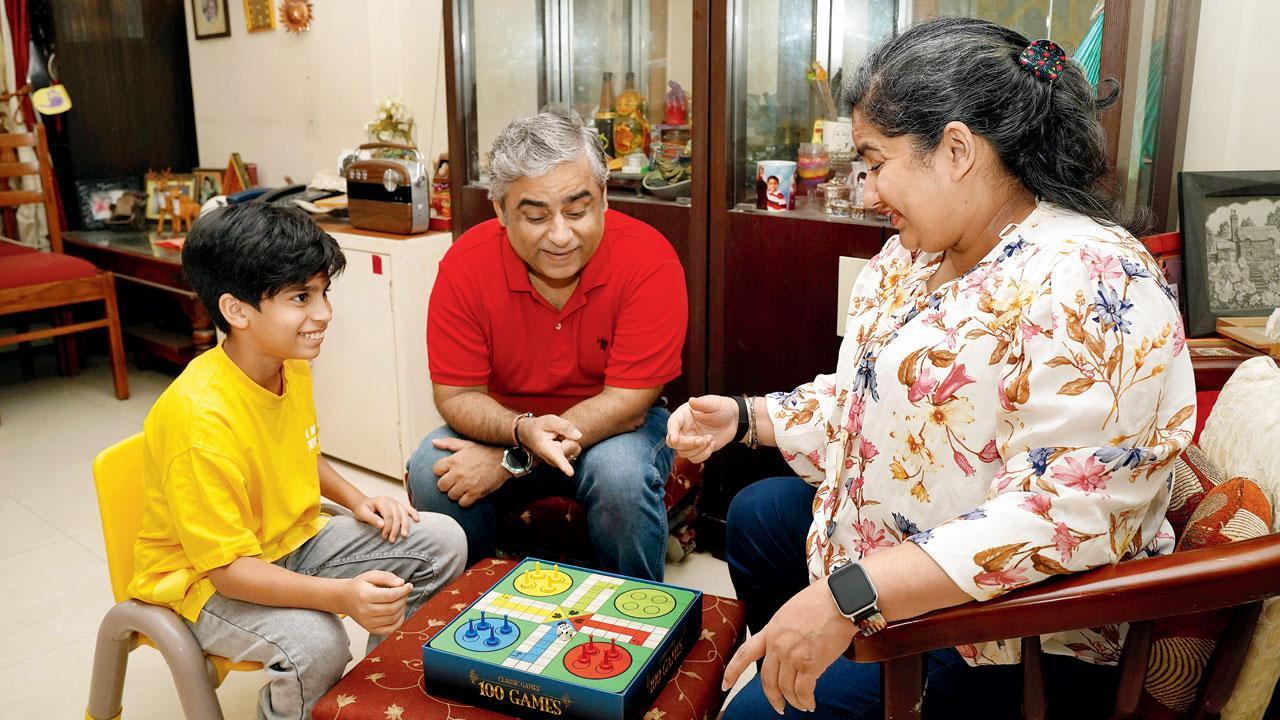Home / Mumbai / Mumbai News / Article /
Locking out old rules
Updated On: 11 June, 2023 08:02 AM IST | Mumbai | Nasrin Modak Siddiqi
A pre-teen with a sense of individuality questions an archaic gender-bias, gets his school’s rulebook changed

Akul Mehra shares a light moment with his parents. Pic/Aishwarya Deodhar
During the pandemic, like most kids, 11-year-old Andheri resident Akul Mehra feared getting a haircut. Over time, he began to love his new look with long hair. The only hitch—he’d had to chop them off when offline classes began, as schoolboys are expected to have short hair. So, in July last year, he wrote an email to the principal of his school—JBCN International School, Oshiwara—requesting permission to retain his long hair, voicing his reasons, and requesting a fair listening to his case.
In a heartfelt email, titled, “HERE with my long HAIR!”—an appeal by Akul Mehra, he mentioned how long tresses, “resonated with me and I didn’t want to wait to be in college to be able to express myself. Everyone is unique and has a right to express themselves. Learning doesn’t depend on how we look but on how we feel and communicate it; learning is not judging each other but respecting and accepting.”



